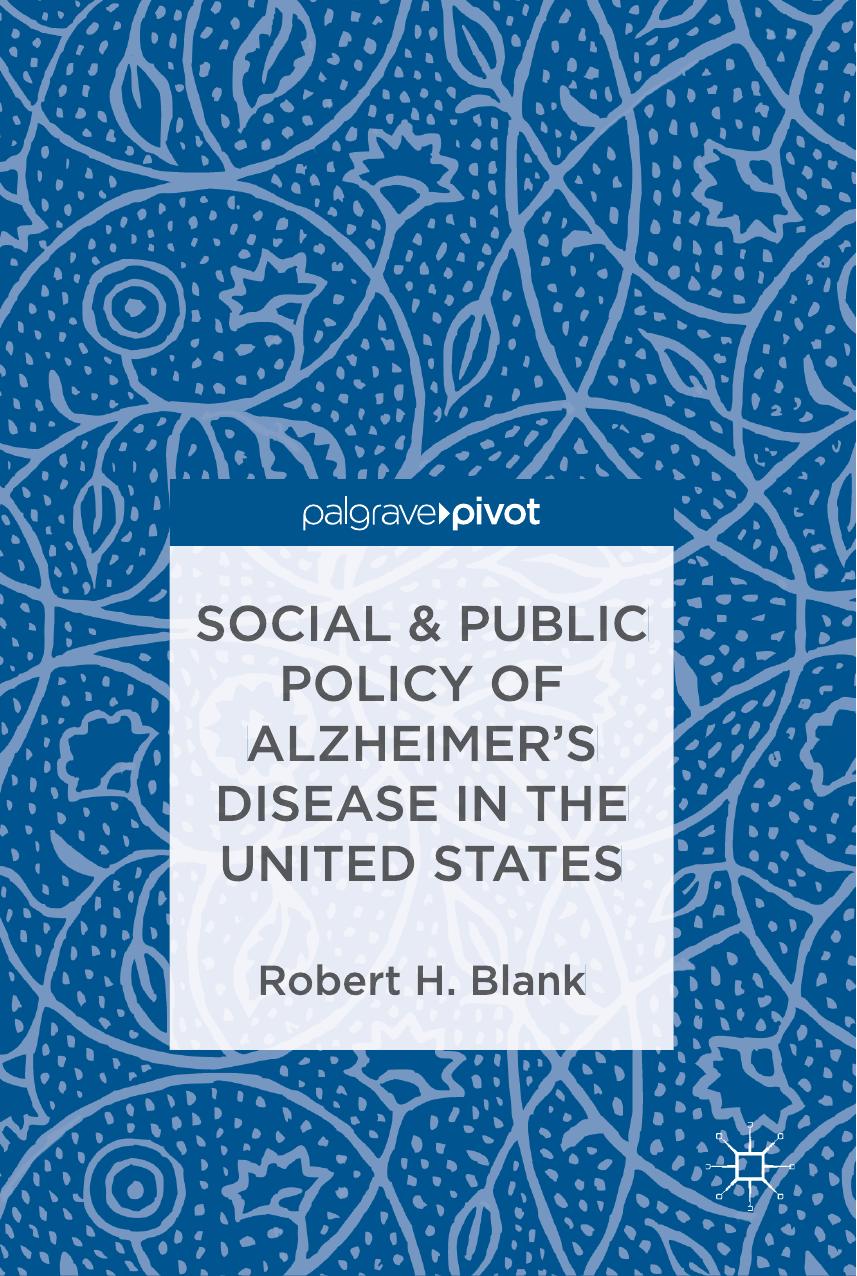Social & Public Policy of Alzheimer's Disease in the United States by Robert H. Blank

Author:Robert H. Blank
Language: eng
Format: epub, pdf
Publisher: Springer Singapore, Singapore
Social Health and Alzheimer’s
Compared to those without AD, people with AD often are less motivated to engage socially, face more difficulties in organizing activities, are embarrassed by their difficulties in communication, or are worried they might not be able to manage normal activities. Also, social norms and low tolerance for cognitive decline of others can result in their isolation. Even in the early stages of cognitive decline, people report feeling lonelier than people with intact cognition (Cohen-Mansfield et al. 2009). Although family members and friends might initially increase contact after diagnosis, their visits tend to decline as the symptoms become more severe, because they find it too distressing. Moreover, those with more severe AD might be forced to locate away from their previous social support network (Livingston et al. 2017).
Although there is considerable academic and media coverage on how cognitive deficits inhibit independence, less attention has focused on social functioning and the capacity to maintain social relationships (Dröes et al. 2017). Because social relationships have considerable impact on the quality of life of AD patients, it is crucial that the social consequences of dementia receive scrutiny (O’Rourke et al. 2015). According to Huber et al. (2011), social health is characterized by three dimensions: (1) the capacity to fulfill one’s potential and obligations; (2) the ability to manage life with some degree of independence, and (3) participation in social activities including work. Dröes et al. (2017) operationalize the first dimension to include the capacity to: exercise choice and autonomy; maintain own identity (personhood); participate and contribute to the community; give and receive support (reciprocity); collaborate with professionals and caregivers; and participate in decision making. When these capacities are in place the person with AD will be able to fulfill her potential and obligations by reciprocating and participating in personal and community life (Innes and Director 2013; Sabat 2001). Factors influencing this dimension of social health are grouped into four categories:1.personal factors, including mental wellbeing and a sense of coherence, self-efficacy, mastery, resilience, and the capacity to endure stigmatization (Sabat 2001);
Download
Social & Public Policy of Alzheimer's Disease in the United States by Robert H. Blank.pdf
This site does not store any files on its server. We only index and link to content provided by other sites. Please contact the content providers to delete copyright contents if any and email us, we'll remove relevant links or contents immediately.
| Administration & Medicine Economics | Allied Health Professions |
| Basic Sciences | Dentistry |
| History | Medical Informatics |
| Medicine | Nursing |
| Pharmacology | Psychology |
| Research | Veterinary Medicine |
Good by S. Walden(3561)
The Social Psychology of Inequality by Unknown(3037)
The Checklist Manifesto by Atul Gawande(2856)
0041152001443424520 .pdf by Unknown(2849)
Get What's Yours for Medicare: Maximize Your Coverage, Minimize Your Costs by Philip Moeller(2754)
The Meaning of the Library by unknow(2576)
Guns, Germs and Steel by Diamond Jared(2374)
Borders by unknow(2319)
23:27 by H. L. Roberts(2252)
And the Band Played On by Randy Shilts(2211)
Being Mortal: Medicine and What Matters in the End by Atul Gawande(2129)
A Leg to Stand On by Oliver Sacks(2041)
The Hot Zone by Richard Preston(2020)
More Than Words (Sweet Lady Kisses) by Helen West(1869)
The Valachi Papers by Peter Maas(1862)
The Laws of Medicine by Siddhartha Mukherjee(1806)
Get What's Yours for Medicare by Philip Moeller(1754)
The Andromeda Strain by Michael Crichton(1747)
The Obesity Epidemic by Robyn Toomath(1681)
